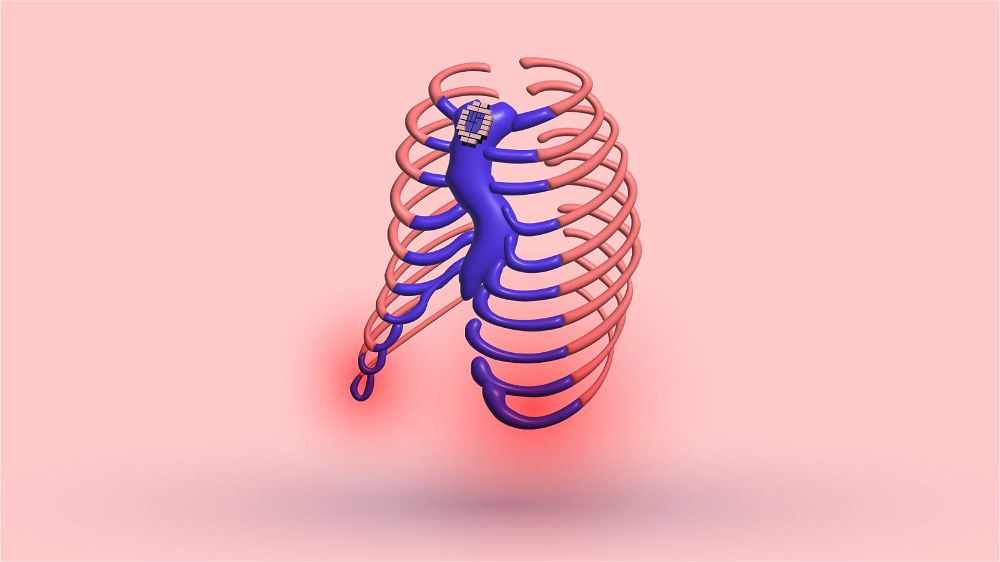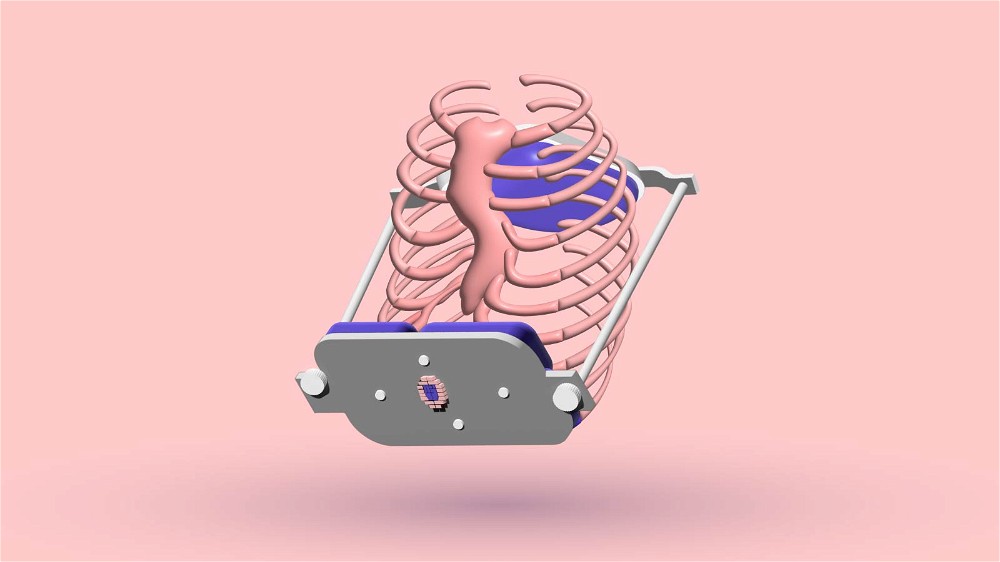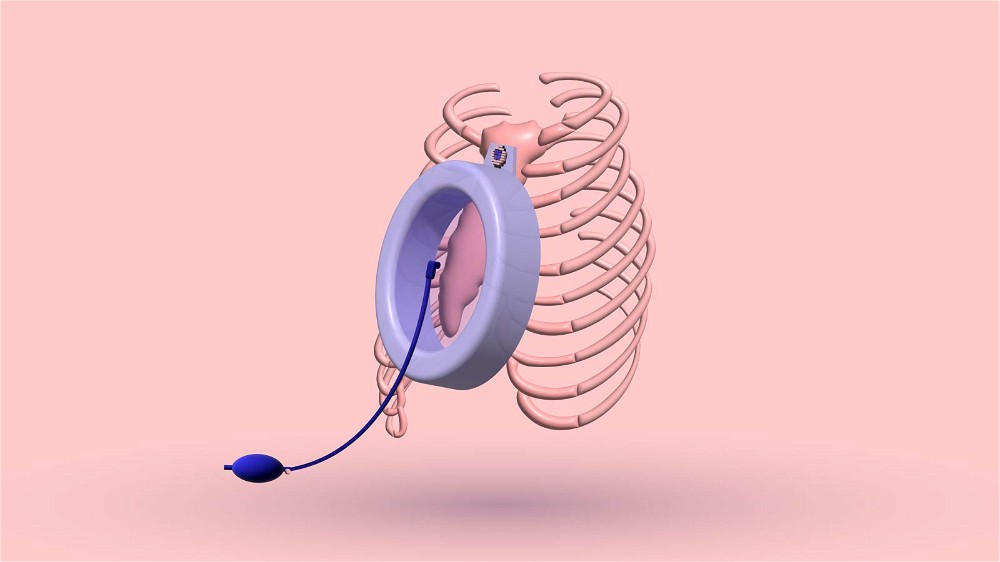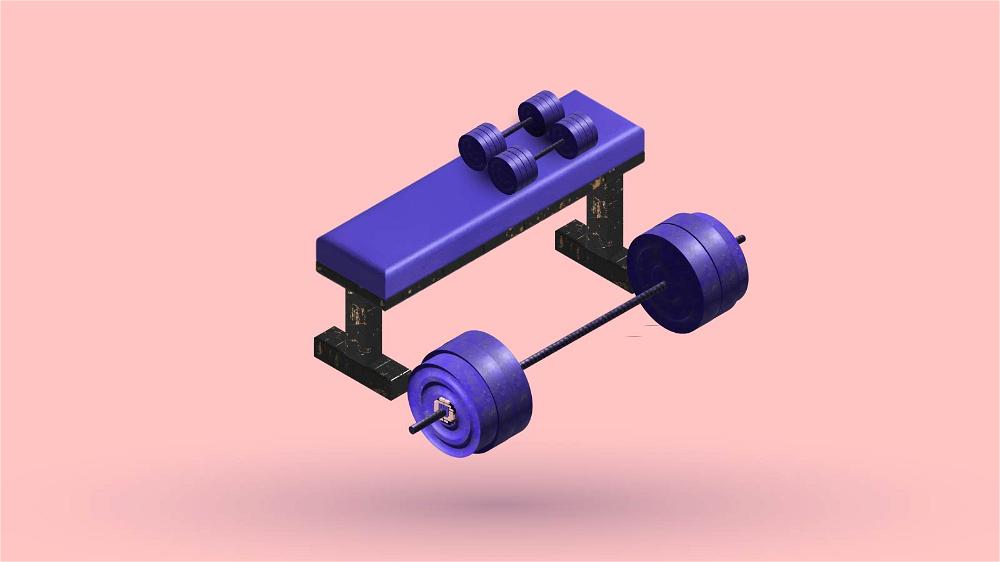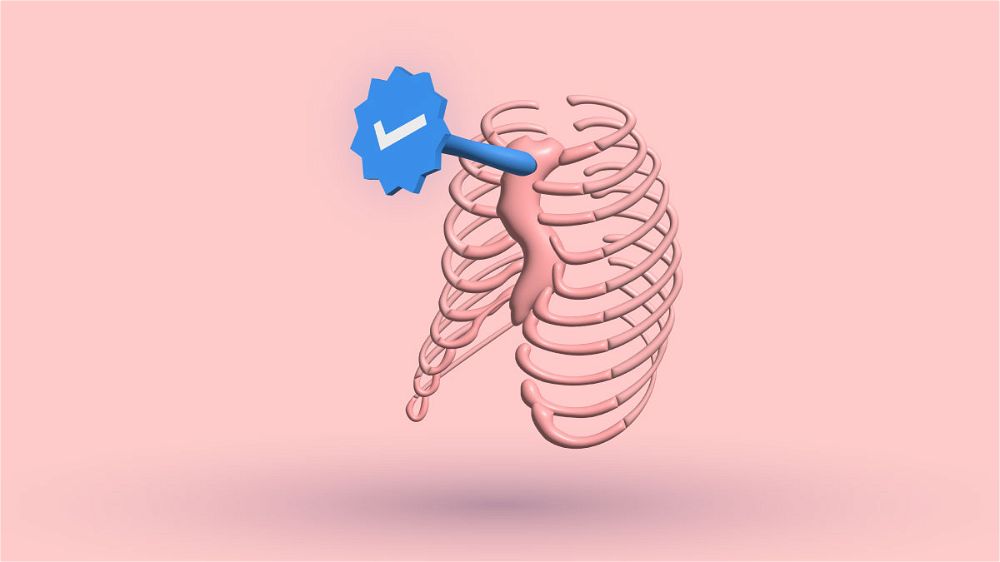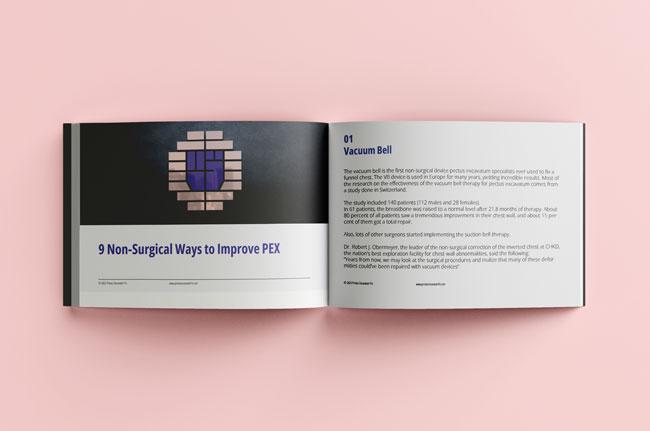Does singing suffer because of pectus excavatum? The answer is yes.
But what is more important is knowing how it affects singing and what you must do to stop pectus excavatum from ruining your passion. Let's start with a simple definition of what singing is.
Singing produces sounds with your voice, using unique vocal and breathing (chest and diaphragm) techniques. In this blog post, I will explain tips and tricks for becoming a better singer with pectus excavatum.
Breathing Techniques for Singing

The connection lies in breathing techniques, lung capacity, and heart functioning. Many singing methods require complex or complicated breathing exercises, which may be difficult for someone with physical problems caused by pectus excavatum. For example, there is a well-known technique called Appoggio.
This musical term requires the singer to hold the chest in a raised position, pushing the abdominal muscles outward or inward or forcing the ribs open. This is something that pectus excavatum can obstruct or not allow the singer to execute.
You can practice this technique more comfortably with constant practice and hard work on your breathing and body engagement.
PAIN WHILE SINGING

Doing things wrong can create pain in your larynx, abs, or chest. Even people without pectus excavatum can have pain from unconscious muscle tension. Intense breathing can cause severe tension in your body.
Abnormal breathing can affect the way your body reacts and functions. Because of that, you need to know the way your body functions. For someone with pectus excavatum, an unnatural way of breathing is familiar.
But, that problem, combined with singing, can worsen the situation if the person does not know how to develop controlled breathing.
HOW TO BE A BETTER SINGER WITH PE

Practicing yoga breathing exercises at least two to three times a week can help. Different breathing exercises and yoga poses for expanding your lungs are excellent for someone who suffers from shortness of breath.
Holding your body in an unnatural, stretched-out position while breathing calmly will help you sing the problematic parts (high notes or even holding a long note).
Knowing that pectus excavatum patients often have trouble with shortness of breath, the mindful yoga poses will allow a lung-opening process. Additionally, any other kind of physical activity can improve your lungs and heart functioning.
Walking, running, and weight lifting, along with yoga and Pilates, are what I do to help me build endurance and eliminate my shortness of breath problems.
PRACTICE DIAPHRAGMATIC BREATHING
The second crucial point is practicing breathing into your diaphragm. The diaphragm muscle keeps the air in your lungs and gives you control of the air delivered to your vocal cords.
The main thing is to become bodily aware of your diaphragm when doing the exercises. Yoga helps with attaining body awareness.
DIAPHRAGM EXERCISES
Your next step is to do diaphragm-strengthening breathing exercises. Once you've learned to breathe correctly and improve your lungs, it is time to strengthen your diaphragm as much as possible.
Please take a deep breath in your diaphragm and hold it as long as possible. Exhale as slowly as you possibly can. Measure how long you can keep your breath in.
Track your process every day, and slowly you can recognize that your diaphragm muscle strengthens while parallelly improving your singing.
Irregular breathing and limited lung capacity can increase tension in your body, which can cause pain in certain areas. Learn to breathe with your diaphragm correctly.
POSTURE WHILE SINGING
Next, you need to focus on body posture while singing. You need to keep your back straight, and your shoulders back and down.
Concentrate on maintaining this proper posture while breathing to give your voice the best breathing space possible. Having weak and tight muscles in the back and neck will negatively affect your singing.
As a result of pectus excavatum, you might have pain in the chest and back, and because of that, you may have a problem keeping a straight back position.
With corrective exercises, you will strengthen your postural muscles. With yoga, you will stretch the tight musculature that forces you into a bad posture.
A solid and flexible body will help you in your singing tremendously. Breathing is the most crucial element in singing. To control your voice, you have to precisely put out the amount of breath needed to create the sound you desire.
Take these pieces of advice into account, and I am sure the chest deformity won't stop you from succeeding in the music world! It would be best if you had self-discipline and a passion for music to become a singer with pectus excavatum.
BODY IMAGE ON STAGE
If you think your body image will affect how your fans perceive you, it is time to improve your deformity. Sometimes having a concave chest will make you more unique as a singer.
You'll distinguish yourself from other musicians, and fans will love you for your confidence. You will both entertain and motivate your fans at the same time.
TAKE PARKER CANNON FOR EXAMPLE
Look at the lead vocalist from the American pop-punk band The Story So Far, Parker Cannon. He is very energetic in his stage performances. He often performs shirtless.
Fans love his mysterious body image and his chest. Being a famous singer with a funnel chest can be a blessing in disguise. Parker Cannon is proud of his chest.
BE AN EXAMPLE
The unwritten rules of how you should appear in the world give us immense anxiety and leave us feeling that we are not enough for that "perfect" world.
People seem bored and tired of all of this and start fighting for equality for everyone. These movements are a mighty relief for someone with a visible pectus excavatum deformity.
But, it's not always about what others think of us. Real happiness lies in our satisfaction with our appearance. Choosing a public job means solid self-confidence.
Using a vacuum bell device, doing yoga, and working out consistently is the key to correct body image as a singer with a hollow chest.
That will positively affect your breathing and make your life healthy as a side effect. If singing is your choice, you must realize that you will be an example for many others.
Having these kinds of hobbies or careers can be used as a platform for promoting many things. A fit body and a healthy lifestyle can be excellent examples for everybody suffering from pectus excavatum.
Let's lift each other up. That's what the world nowadays is missing. Also, a fit body will improve your day-to-day life, no matter your job. But don't forget!
Feeling comfortable in your body is what brings us that ultimate happiness! Be a rare modern-day example to other people on how to live happily despite your irregularities.
CONCLUSION
Having pectus excavatum can affect us in our everyday life. When the deformity is severe, it can affect the sufferers physically and mentally every second of their lives.
It can change how we sleep, work out, and wear. As a singer with pectus excavatum, you don’t want to wear a too-tight shirt that makes your flared ribs stick out.
Pectus excavatum can also change our hobbies and even play a role in choosing our jobs. But we must stay strong and fight for what we love to do!
The deformity can’t stop us from our dream jobs. If you aspire to become a famous singer, you should check out the long list of celebrities who suffer from pectus excavatum.
By attaining a healthy mind and body, they decided to achieve their goals no matter what! There are many athletes, actors, and singers on that long list of superstars with pectus excavatum.
Maybe if they had a fragile attitude and mindset, they would’ve never become what they are today. Because of that, I have some inspirational words for you. Never stop for what your passion is!
When a solution to the problem exists, there is hope. But you have to stay motivated. This is very important and is in a thin connection with our topic.
10 Sources
- Singing - Wikipedia [Internet]. [cited 2022 Dec 2]. Available from: https://en.wikipedia.org/wiki/Singing
- Appoggio - VoiceScienceWorks [Internet]. [cited 2022 Dec 2]. Available from:
https://www.voicescienceworks.org/appoggio.html - Larynx. In: Wikipedia [Internet]. 2022 [cited 2022 Dec 2]. Available from:
https://en.wikipedia.org/w/index.php?title=Larynx&oldid=1118301980 - Struggling for breath: Videogame technology documents abnormal breathing patterns
in patients with sunken chest -- ScienceDaily [Internet]. [cited 2022 Dec 2]. Available
from: https://www.sciencedaily.com/releases/2010/10/101012095229.htm - Diminished pulmonary function in pectus excavatum: from denying the problem to
finding the mechanism - PMC [Internet]. [cited 2022 Dec 2]. Available from:
https://www.ncbi.nlm.nih.gov/pmc/articles/PMC5056935/ - Yoga poses for mindfulness - Blackmores [Internet]. [cited 2022 Dec 2]. Available
from: https://www.blackmores.com.au/energy/yoga/yoga-poses-for-mindfulness - How to Sing Using Your Diaphragm: 10 Steps (with Pictures) [Internet]. [cited 2022 Dec
2]. Available from: https://www.wikihow.com/Sing-Using-Your-Diaphragm - Diaphragmatic Breathing Exercises & Benefits [Internet]. Cleveland Clinic. [cited 2022
Dec 2]. Available from: https://my.clevelandclinic.org/health/articles/9445-diaphragmatic-breathing - Lewis L. Breath Control in Singing | Lis Lewis • The Singers Workshop [Internet]. 2004
[cited 2022 Dec 2]. Available from: https://thesingersworkshop.com/breath-control/ - parker cannon chest - [Internet]. [cited 2022 Dec 2]. Available from:
https://www.google.com/search?q=parker+cannon+chest&sxsrf=ALeKk03-
XBqhluMvdqfuEjdwJ8y5TNUlmg:1607706231165&source=lnms&tbm=isch&sa=X&ved=
2ahUKEwjW3b62tMbtAhXSz4UKHSu8AzAQ_AUoAXoECBAQAw#imgrc=eSkAYvaD4JhuUM






